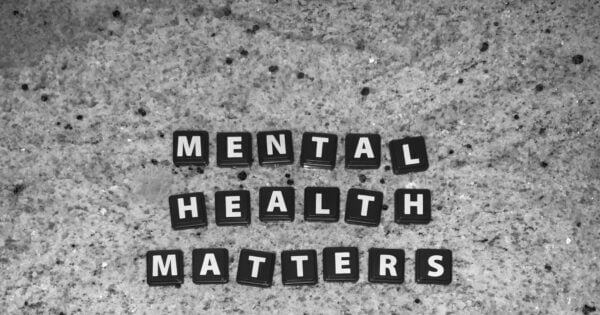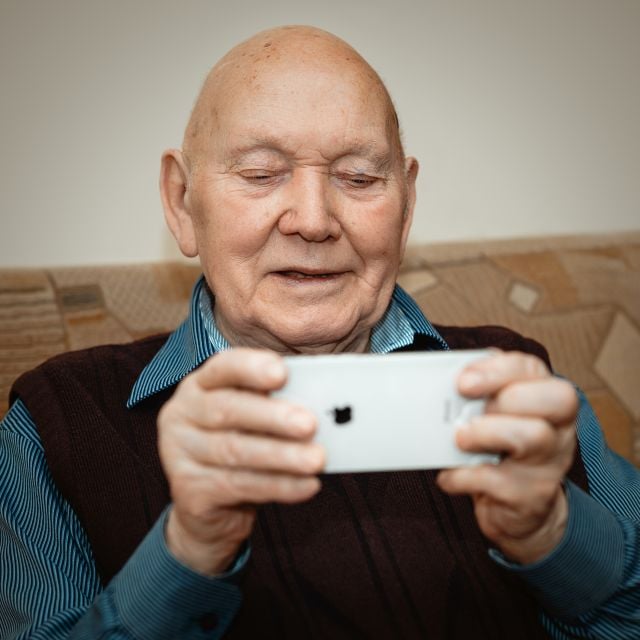

Riane Eisler, an Austrian-born American systems scientist, futurist, and human rights advocate, is renowned for her influential work on cultural transformation and gender equity. Best known for The Chalice and the Blade, she introduced the partnership versus dominator models of social organization. She received the Humanist Pioneer Award. Drawing on neuroscience and history, she argues that peace begins at home and calls for a shift in worldview to build more equitable, sustainable, and compassionate societies rooted in connection rather than control. The three books of hers of note that could be highlighted are The Chalice and the Blade—now in its 57th U.S. printing with 30 foreign editions, The Real Wealth of Nations, and Nurturing Our Humanity: How Domination and Partnership Shape Our Brains, Lives, and Future (Oxford University Press, 2019).
In this interview with Scott Douglas Jacobsen, Eisler speaks about replacing Freud’s “adjustment” paradigm with a partnership model of mental health. Eisler argues domination systems—patriarchy, rigid hierarchies, punitive norms—distort wellbeing from families to economies. Neuroscience and experience, she says, show humans are predisposed to empathy and cooperation, though these can be suppressed or confined to in-groups. She links cultural “wars,” social media pressures, and the devaluation of care work to distress, and calls for the deconstruction of violent myths alongside the reconstruction of stories, measures, and institutions. The conversation spans the Human Potential Movement, the limits of GDP, and strategies to “wean” societies from normalized violence.
Interview conducted November 1, 2025, in the afternoon Pacific Time.
Scott Douglas Jacobsen: Once more, we’re here with Riane Eisler. We’re going to be talking today about the framework of the late Sigmund Freud—about people simply adjusting to a more contemporary framing. Although there are statistical variations, generally speaking, the newer ways of looking at mental health refer to a more modern understanding of healing and being healthy in contrast to simply adjustment models like Freud. What does adjusting mean in a Freudian model mean when you’re analyzing this from a whole-systems perspective? How does this compare to a contemporary framing of healing and being healthy?
Riane Eisler: It reflects, of course, a shift from domination to partnership. To adjust is to adapt to what is. Healing and being healthy involve looking at the human potential for something better. That has been quite a shift in how we view mental health. The earlier model of “adjustment” was infused with sexism, which again shows the importance of gender.
It also carried stereotypes of masculinity and femininity. Women were supposed to have “penis envy” if they wanted to enter positions monopolized by men in Freud’s time. And this was really only about a hundred years ago.
Freud made some enormous contributions. He explored the unconscious, for example—an idea developed by earlier thinkers but popularized and systematized in psychoanalysis—looking at the things we carry from childhood. But his assumptions—and I write about this in Nurturing Our Humanity, which, as you know, I co-authored with Douglas P. Fry, a noted anthropologist and peace scholar—were deeply tied to his era. The shift away from Freud’s narratives toward recognizing that we have mental health problems we are conscious of represents a substantial change.
This is not to say there haven’t been challenges. Social media, for example, has pushed many young people into constant comparison and has negatively affected their mental health. You can see these trends—moving back and forth, back and forth. It’s often either domination or partnership.
Jacobsen: How can we talk about these things without taking culture and society into account, as if we existed independently of them? The parenthetical question is: why was that such a big blind spot?
Eisler: We are not used to whole-systems analysis. For example, the trend toward recognizing human potential—the Human Potential Movement—was a cultural movement and part of the broader shift toward a partnership society. These are all interconnected movements, and you cannot fully understand them without examining both cultural and structural shifts, including the environmental movement, the women’s movement, the civil rights movement, and the peace and anti-war movements.
The anti-racism movement, the environmental movement, the women’s movement—they’re all movements toward a partnership culture. And then you have the regressions, which are reactions to them. This plays out in the culture. We cannot really separate what’s happening—and the lack of understanding of mental health issues in much of the regressive culture—from the broader struggle between partnership and domination models. The domination model, which seeks to return to more rigid hierarchies, is actually causing many of the mental health issues we see today.
Starting in families and extending to economic systems that ignore the three life-sustaining sectors—household, natural, and volunteer work—you really have to look at the whole picture. We’re not used to that. Slowly, people are beginning to connect the dots, and that is very important. I hope that these conversations with you can help people truly connect what’s happening in families, for example, with the opioid crisis, and what’s happening in culture at large. These things don’t happen in isolation from the larger culture and subcultures.
There’s a culture war going on, though we’ve stopped talking about it. It’s exciting. It’s still there. And I think the reason we’ve stopped talking about it is that it’s now clear it’s not simply between “right” and “left,” as it was framed. The left can be just as wedded to a domination model—they want someone else to be on top.
Take the former Soviet Union, for instance. It operated under a patriarchal, repressive, and often violent regime. Marx’s idea of the proletariat taking over turned into a deeply authoritarian structure. It was a leftist regime, but it was regressive and violent nonetheless.
I think we’ll hear more about culture wars in the future. I don’t like the term “wars” because it implies violence. “War on drugs,” “war on poverty,” and so on—those are American propaganda frames. Everything becomes a war. It maintains a punitive attitude—one that normalizes violent punishments in families. It prepares us to deny that there’s anything wrong with such practices, to deny that they affect our mental health.
What we need, of course, is to view mental health through a neuroscience lens. We just held a summit called Peace Begins at Home. One of our speakers, Dr. Richard Davidson, has worked with the Dalai Lama on the science of compassion. His view of human nature aligns closely with findings from neuroscience and with what I write about in Nurturing Our Humanity: all things being equal —which they rarely are —humans tend to be kind, caring, and empathetic.
Empathy is part of our evolutionary inheritance, but it can be suppressed or compartmentalized—often reserved for the in-group, especially for males within the in-group. We have a lot to deconstruct and reconstruct to achieve mental health truly.
That’s happening now through the re-examination of old stories—religious and mythological alike. Take the story of Eve being blamed for all of humanity’s ills; that’s absurd. Or The Odyssey, which carries clues to an earlier time when women had greater power. Yet even there, the narrative becomes an idealization of the hero’s journey—and the hero is a killer.
Jacobsen: Two thoughts come from that. The first is this: the idea of mental health as a holistic concept grounded in science, neuroscience, and developmental psychology is relatively new. That’s point one.
Point two is a footnote. In our discussions, we typically reference fascist regimes on the far right or Marxist regimes on the far left—both of which are traditionally patriarchal, domination-oriented systems. My question within that second point is this: have there ever been centrist regimes that are domination-oriented? That’s the question for point two. And point three—well, I’ve forgotten point three, but it’ll come back to me. So yes, that’s the question: have there been centrist domination-based systems?
Eisler: I’m not sure what you mean by centrist. If you tell someone between the right and the left—well, who is that? Because both ‘right’ and ‘left’ are arbitrary terms describing systems we know to be top-down. A “centrist” in that context is hard to define. I keep hearing about moderates and centrists, but I think those terms are essentially meaningless.
We really have to understand that these are polarities within domination thinking. They don’t help us make real change. What you’re referring to, I believe, is the new movement—the emerging understanding of human nature that challenges the old stories we’ve been told. The idea that humans are inherently bad, evil, or ruled by “selfish genes”—that’sHobbesian thinking. Poor Hobbes keeps being dragged out as a model for this mindset, but we forget that, based on his assumptions, his only possible conclusion was absolute top-down control.
If you believe humans are fundamentally selfish and brutish, then of course you need control. But the evidence contradicts that. In natural disasters, like the Blitz in London, people come together to help one another. That’s what actually happens. Our true nature is one of care. We empathize; we cooperate.
So the movement toward genuine health—mental and cultural—has to be understood within the broader shift from domination to partnership. Freud’s concept of “adjustment” fits squarely within a dominant culture. If you read some of his parables or mythic narratives, you’ll see he rejects religious superstition while keeping the same underlying story.
Take his origin story: sons killing the father—the Oedipal complex. It’s endlessly repeated, generation after generation. But it’s absurd. Whether sons rebel or not depends entirely on what the father does. If the father is a tyrant, then yes, the sons may want to replace him as tyrants themselves. And that’s precisely the story Freud tells us. Freud has to be understood in the context of his time—and it was not a good time.
To put it in a nutshell, the movement has been from seeing mental health as “adjustment” to a domination system—a top-down system, whether that’s men over men, men over women, race over race, or religion over religion. It doesn’t matter; it’s all part of the same domination structure.
Now we’re moving away from that toward recognizing that mental health is its own field of understanding —one that can be studied and developed. And what we know from neuroscience today is that human nature is very different from the old notion of people as purely selfish and self-centred.
Yes, we want to survive, but people also recognize our interconnection. That’s what’s so fascinating—and it’s even embedded in many religious scriptures. At their core, most contain some form of the Golden Rule: “Do unto others as you would have them do unto you.”
So we’re in a period of sorting things out and, frankly, of awakening. I dislike the term woke—it’s ungrammatical and often misused—but it is a time of awakening. We’re realizing that many of the old stories we were told aren’t true, and we need new ones. Many creative people are wrestling with that challenge.
Jacobsen: And there’s also the personal side. Many people—especially those who have cultivated artistic or intellectual skills—are creating new narratives through painting, film, writing, and other art forms. But I think for many others, those who aren’t professional storytellers, there’s a similar struggle on the individual level. They’re trying to make sense of their own personal stories in a world that’s constantly shifting.
Eisler: A significantly shifting world. A world that, as I often say, is interconnected not only by technologies of communication and transportation, but also by technologies of destruction. The domination system isn’t adapted to that reality. And, of course, we’re also seeing the destruction of our Mother Earth—what we now call climate change. And yes, we are experiencing it. It’s the end of November, and it’s impossible not to notice.
It’s the beginning of November, and we’re having a heat wave in Northern California—it’s around 28 degrees Celsius. But really, the interview is simple at its core: it’s about the shift from domination to partnership.
Jacobsen: Do you think the earlier point about how Freud viewed mental health—or mental illness—as an adjustment to existing social structures reflects a broader cultural framing of the self as isolated? Because it seems that a healthy conception of self would be more relational—an extended self rooted in connection with others, not just an internal equilibrium. When people are cut off from that, such as in solitary confinement, they fall apart.
Eisler: People do fall apart in solitary confinement. That’s absolutely true. I think Freud’s idea of adjustment meant losing yourself, becoming comfortable with injustice and with the dysfunction caused by domination systems.
And yes, those systems produced immense mental health issues. The women of Freud’s time were not “crazy,” and they certainly didn’t have penis envy. They wanted equity in their relationships.
And the men, who were pressured to be ever more competitive and grasping—constantly climbing the hierarchy—they had their own psychological wounds. But those were cultural problems, caused by the same domination system.
Freud, for all his insights into the unconscious and for all he contributed, couldn’t see that. He was a product of his time—just as Marx and Adam Smith couldn’t see the economic value of caring work: caring for people from birth, or caring for Mother Earth. They called such work “reproductive” instead of “productive.”
That, too, is changing. There’s an awakening happening. Many economists are finally questioning the adequacy of GDP as a measure of wellbeing.
Jacobsen: Yes, I’ve seen that emerge in UN discussions and media ecosystems—people beginning to challenge the limits of GDP.
Eisler: But we have to do more than deconstruct. We also have to reconstruct.
Jacobsen: Yes, that’s the more challenging part. Reconstruction is 80 percent of the battle—experimenting with new ways of living and storytelling.
Eisler: Many of these “new stories,” as people call them, are experiments in weaning humanity off violence—whether it’s cinematic violence or the old Roman-circus kind.
Film is an improvement over blood sport, but not by much, because so much violence still begins at home. And then there’s the emotional numbing—the loss of empathy. Too many people have become desensitized to others’ suffering. And so, we maintain this ancient institution, we still call war.
Jacobsen: Here’s a slightly less psychology-oriented question—more criminology across time—but I think it connects to how psychology plays out within this model.
If we compare the Roman circus—public spectacles of violence—to modern societies such as China, the United States, or the European Union as a whole, how do violent crime rates per capita compare? In other words, how violent were Roman times compared to today’s societies, which have “celluloid” or mediated forms of violence through film and television?
Eisler: I don’t think anyone in ancient Rome systematically measured crime rates the way we do today, but it would be fascinating to find out. Rome was held together primarily through fear and the spectacle of violence. It was a pure domination system—a top-down structure sustained by coercion.
The real question for us now is: how do we wean people off the adrenaline rush that comes from violent entertainment—the constant portrayal of conflict and dominance on screen?
And related to that, how do we begin to challenge the eroticization of violence—the way sexuality is often intertwined with domination? That’s where I would start when unpacking the broader issue of pornography and power dynamics. Someone is always the dominator; even in something as symbolic as the missionary position, it reflects a “man-on-top”worldview.
It requires a holistic approach, but people are beginning to connect the dots—slowly, but surely. That gives me hope on the deconstruction side. The reconstruction side, however, is harder.
Many people are traumatized—some still consciously or unconsciously identify with those on top, those who dominate. Others remain in denial, still believing that male dominance or hierarchical control is divinely ordained—that kings, presidents, dictators, whoever happens to be “on top,” are there by cosmic right.
How do we reach them? That’s the challenge. But I think there’s a large group of people in the middle who, through the lens of the partnership–domination framework, can begin to wake up and say, “I see now that this isn’t healthy. This doesn’t support mental, physical, or societal wellbeing.”
Jacobsen: Thank you for the opportunity and your time, Riane.
—
Scott Douglas Jacobsen is the publisher of In-Sight Publishing (ISBN: 978-1-0692343) and Editor-in-Chief of In-Sight: Interviews (ISSN: 2369-6885). He writes for The Good Men Project, International Policy Digest (ISSN: 2332–9416), The Humanist (Print: ISSN 0018-7399; Online: ISSN 2163-3576), Basic Income Earth Network (UK Registered Charity 1177066), A Further Inquiry, and other media. He is a member in good standing of numerous media organizations.
***
If you believe in the work we are doing here at The Good Men Project and want a deeper connection with our community, please join us as a Premium Member today.
Premium Members get to view The Good Men Project with NO ADS. Need more info? A complete list of benefits is here.
—
Photo by Marcel Strauß on Unsplash
Disclaimer: This story is auto-aggregated by a computer program and has not been created or edited by healthlydays.
Publisher: Source link












